Ditapis dengan
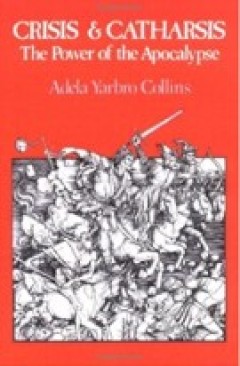
Crisis and Catharsis : The Power of the Apocalypse
- Edisi
- First Published
- ISBN/ISSN
- 0-664-24521-8
- Deskripsi Fisik
- 179 pgs.; 23 cm.
- Judul Seri
- -
- No. Panggil
- 228.06 COL c
- Edisi
- First Published
- ISBN/ISSN
- 0-664-24521-8
- Deskripsi Fisik
- 179 pgs.; 23 cm.
- Judul Seri
- -
- No. Panggil
- 228.06 COL c

Revelation : A Post-Colonial View Point
- Edisi
- First Published
- ISBN/ISSN
- 81-7214-626-4
- Deskripsi Fisik
- xiii + 104 pgs.; 21,5 cm.
- Judul Seri
- -
- No. Panggil
- 228 JOY r
- Edisi
- First Published
- ISBN/ISSN
- 81-7214-626-4
- Deskripsi Fisik
- xiii + 104 pgs.; 21,5 cm.
- Judul Seri
- -
- No. Panggil
- 228 JOY r
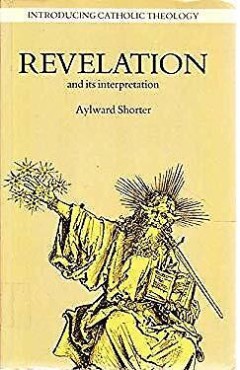
Revelation and Its Interpretation
- Edisi
- First Published
- ISBN/ISSN
- 0-225-66356-2
- Deskripsi Fisik
- xiii + 277 pgs.; 21,5 cm.
- Judul Seri
- -
- No. Panggil
- 231.74 SHo r
- Edisi
- First Published
- ISBN/ISSN
- 0-225-66356-2
- Deskripsi Fisik
- xiii + 277 pgs.; 21,5 cm.
- Judul Seri
- -
- No. Panggil
- 231.74 SHo r
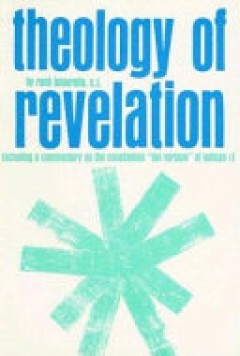
Theology of Revelation : Including a Commentary on the Constitution "Dei Verb…
For fruitful discussion within the Church, for a meaningful dialogue with other Christians, for the renewal of the theology of preaching -- for these and many other reasons, we need a new understanding of the nature of revelation. The usual apologetical treatment of revelation, bent on proving its existence, touches but the fringe of the reality. Our day and age needs a theology of revelation w…
- Edisi
- First Published
- ISBN/ISSN
- -
- Deskripsi Fisik
- 520 pgs.; 21,5 cm.
- Judul Seri
- -
- No. Panggil
- 231.74 LAT t
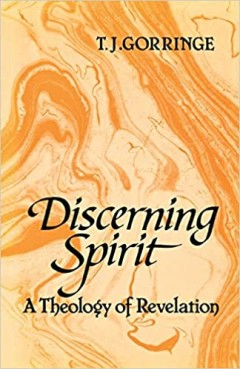
Discerning Spirit : A Theology of Revelation
Good books on the Holy Spirit have been few and far between, and this may claim to be one of the best since John V. Taylor's classic The Go-Between God. Its argument is simple. A God who is not engaged in our world is no God. But if God engages, then it must be possible to know him, and the language which the Christian tradition uses in this connection is that of God's revelation. But where doe…
- Edisi
- First Published
- ISBN/ISSN
- 0-334-02462-5
- Deskripsi Fisik
- vii + 144 pgs.; 21,5 cm.
- Judul Seri
- -
- No. Panggil
- 231.74 GOR d
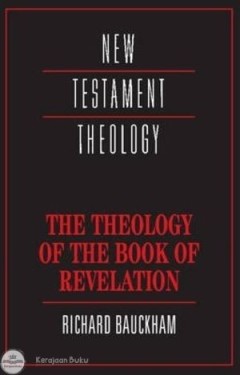
The Theology of the Book of Revelation: New Testament Theology
The Book of Revelation is a work of profound theology. But its literary form makes it impenetrable to many modern readers and open to all kinds of misinterpretations. Richard Bauckham explains how the book's imagery conveyed meaning in its original context and how the book's theology is inseparable from its literary structure and composition. Revelation is seen to offer not an esoteric and enco…
- Edisi
- First Published
- ISBN/ISSN
- 0-521-35610-5
- Deskripsi Fisik
- xv + 169 pgs.; 21,5 cm.
- Judul Seri
- -
- No. Panggil
- 228.06 BAU t
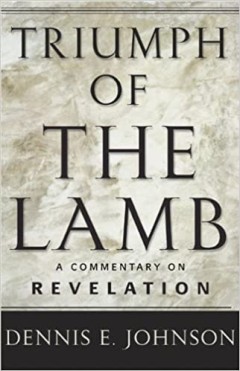
Triumph Of The Lamb: A Commentary On Revelation
The book of Revelation is an unveiling, a vivid disclosure of invisible realities. Yet its bizarre imagery often leaves us puzzled. Dennis E. Johnson deftly guides us through questions about how to interpret Revelation, what it meant to its original audience, and how it equips us today. He explains that Revelation fortifies the church against the Enemy's wiles by disclosing the profound paradox…
- Edisi
- First Published
- ISBN/ISSN
- 0-87552-200-9
- Deskripsi Fisik
- x + 384 pgs.; 23,5 cm.
- Judul Seri
- -
- No. Panggil
- 228.07 JOH t
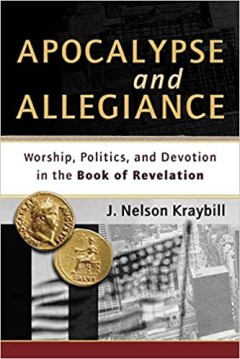
Apocalypse and Allegiance: Worship, Politics, and Devotion in the Book of Rev…
In this lively introduction, J. Nelson Kraybill shows how the book of Revelation was understood by its original readers and what it means for Christians today. Kraybill places Revelation in its firstcentury context, opening a window into the political, economic, and social realities of the early church. His fresh interpretation highlights Revelation's liturgical structure and directs readers' a…
- Edisi
- First Published
- ISBN/ISSN
- 978-1-58743-261-3
- Deskripsi Fisik
- 224 pgs.; 22,5 cm.
- Judul Seri
- -
- No. Panggil
- 228.06 KRA a
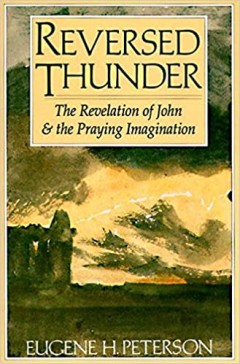
Reversed Thunder: The Revelation Of John & The Praying Imagination
Peterson's eloquent meditation on the Revelation of St. John engages the imagination and awakens the intellect to the vitality and relevance of the last words on scripture, Christ, church, worship, evil, prayer, witness, politics, judgement, salvation, and heaven.
- Edisi
- First Published
- ISBN/ISSN
- 978-0-06-0665036
- Deskripsi Fisik
- xiv + 206 pgs.; 20,5 cm.
- Judul Seri
- -
- No. Panggil
- 228.06 PET r
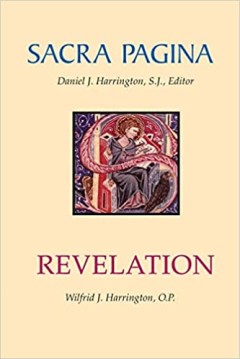
Revelation
More than any other New Testament writing the Book of Revelation demands commentary. Its often bewildering text is easily open to less than scholarly interpretation. Father Harrington brings his scholarship to the Book of Revelation and conveys its Christian message. He puts the work in its historical and social setting a first-century c.e. province of the Roman Empire and explores its socia…
- Edisi
- First Published
- ISBN/ISSN
- 0-8146-5818-0
- Deskripsi Fisik
- xix + 271 pgs.; 23,5 cm.
- Judul Seri
- Sacra Pagina Series Number 16
- No. Panggil
- 228.077 HAR r
 Karya Umum
Karya Umum  Filsafat
Filsafat  Agama
Agama  Ilmu-ilmu Sosial
Ilmu-ilmu Sosial  Bahasa
Bahasa  Ilmu-ilmu Murni
Ilmu-ilmu Murni  Ilmu-ilmu Terapan
Ilmu-ilmu Terapan  Kesenian, Hiburan, dan Olahraga
Kesenian, Hiburan, dan Olahraga  Kesusastraan
Kesusastraan  Geografi dan Sejarah
Geografi dan Sejarah